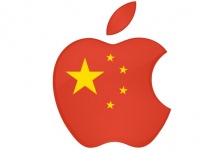 Michael W. Perry, author of Untangling Tolkein, posted a thoughtful comment to the article iBookstore is a “dismal failure” says David Winograd of TUAW. The issues he raised are interesting enough that I thought the comment should be reprinted in full here. His comment follows (blockquotes omitted):
Michael W. Perry, author of Untangling Tolkein, posted a thoughtful comment to the article iBookstore is a “dismal failure” says David Winograd of TUAW. The issues he raised are interesting enough that I thought the comment should be reprinted in full here. His comment follows (blockquotes omitted):
TUAW is right. Unless we get surprised at the upcoming Oct. 20 event, there’s little evidence that Apples care much about their iBookstore. They’ve yet to create a Mac version of iBooks, much less one that is as multi-platform as the Kindle. They have nothing like the ability I have to download ebooks for and synch my reading and notes between my Mac, Kindle, iPhone and iPod touch, all almost effortless and in a few seconds.
I’m as worried as anyone that Amazon will make their already roughly 70% dominance of the ebook market even greater. But as a writer, it’s hard to find anyone else who’s making much effort to compete: not Apple, not Sony and not even B&N. And no one, except perhaps Ingram Digital, seems to be trying to create a market for ebooks that’s as open and free as that for printed books.
I’m particularly impressed with the flurry of tools Amazon has released in the last few weeks, including an export plug-in for InDesign that, for a 0.9 version, works quite well. My only complaints are that it chokes on large numbers of styles and generates the ugliest linked table of contents on the planet. Done right, I’ll let publishers create once in InDesign and output in print, epub and the Kindle’s mobi format.
Winner tend to have advantages. Given Amazon’s lion’s share of the ebook market, the best move I can make right now as a writer is to create a mobi version of my books directly for Amazon (giving me full control of how it looks) and let Smashwords generate and handle the other 30% of the market with their Meatgrinder conversion engine. It’s just not worth my while to fiddle with one epub version for Apple, another for Sony and a third for B&N, including the hassles of separate contracts with each. I wish that weren’t so, but it is.
And what I am seeing as a writer is probably similar to what large publishers are seeing. You get more bang for the buck creating ebooks for Amazon’s proprietary format than you do creating ebooks in epub for the rest of the market. That’s why, as that TUAW writer discovered, you find more ebooks on Amazon and often at better prices. There’s an economy of scale creating books for Amazon that you don’t find anywhere else.
–Michael W. Perry, author of Untangling Tolkien


































Winograd makes accurate and true points in his assessment of the state of the iBookstore today. But labelling it as a failure after a few months is just silly and commercially naive.
Apple appears to have it’s concentration elsewhere right now and their strategy for the iBookstore is just not working. That is clear.
But this whole eBook market is i it’s embryonic stage and there is only one certainty imho and that is that it will all change in the next two or three years.
Nothing has been won or lost. No one has failed or triumphed. It is a work i progress with huge opportunities for those willing to dive into the market.
Yes, its early to brand the iBookstore a failure…
…but…
Apple products generally fall ito two categories; instant hits (Apple II, Macintosh 128, iMac, iPod, iPhone, iPad) and total duds (Apple III, Lisa, Newton, Pippin, The Cube, the hockey puck, Apple TV). The duds sometime soldier on like zombies but Apple (especially under Jobs) has never been one to waste much effort iterating on failures or near misses the way Microsoft does.
And iBook has two strikes on it already:
1- it didn’t set the world on fire at launch
2- it’s long term survival depends on the Price-Fix Five prevailing in their effort to reset ebook pricing expectations.
The third strike (coming) is that Apple hates commodity pricing.
And since ebooks are very much a commodity market odds are that iBooks will never get much of Apple’s attention. In Job’s universe, losers never get second chances.
Best guess is Apple adds either ADEPT or B&N compatibility (Hmm, Apple should buy B&N and turn their storefronts into Apple-Plus stores.) and slowly deprecates Fairplay DRM and quietly outsources the back end of iBooks. As long as iOS hosts Kindle, B&N, Kobo, and Overdrive reader apps, iBooks is just not going to generate enough revenue to justify much evolution of the app or the store.
And that’s the best case scenario.
Worst case?
Jobs can shrug and say; “Told you so. People don’t read anymore.” And pull the plug.
Me, I don’t think iBooks is going anywhere (in any sense of the word) but neither is it going to add up to much of anything in the ePub vs Amazon “war”. Any sales iBooks achieves will simply come from the B&N, Kobo, ADE side of the ledger.
And that’s not going to satisfy Jobs either; the only thing worse than failure is irrelevancy. Live or die, iBooks is simply not going to be very relevant.
(Unless Apple buys B&N or Borders and folds them into iBooks. Hmm, I’m really liking that idea…) 😉
beg to differ on price – Chapters/Kobo is cheaper than Amazon in Canada
It must have been a slow news day over at TUAW when they vomited out that bit of flame bait.
It’s really too soon to compare the iBookstore in all its single platform ( iOS ) glory against the 800 lb gorilla of ebooksellers ( aka Amazon ) that is available on practically everything except televisions and the PS3/Wii/Xbox.
This isn’t iTunes where Apple caught the record industry with their collective pants down. The book publishers saw Apple coming. But it doesn’t matter anyway. Apple doesn’t make a profit on any of the media they sell. It’s just content to sell their hardware.
But publishers are slowly pushing their wares out to the iBookstore. O’Reilly earlier this week, and some time in August/September Harlequin joined up. As more publishers become comfortable with doing business thru Apple the number of books will increase.
Great set of comments all the way down — thanks everyone — lots of food for thought.
In the past, I have underestimated the genius of Apple; their creative genius in developing quality products, and their marketing genius, in making me desire them. Underestimating Apple: I try to avoid this mistake in the present.
Thirteen years ago, Apple was on the brink of bankruptcy; they were rescued by a 205 million dollar investment from Bill Gates — which gave Microsoft a 5% share in the Apple company.
Now, an analyst (see article link below) has predicted that the iPad may sell 45 million units in 2011. The Jesus tablet is spreading like religion.
http://www.macobserver.com/tmo/article/analyst_apple_could_sell_45_million_ipads_in_2011/
It could be that Apple is brewing a 4-part plan:
1. Sell iPads worldwide, until they are as common as cell phones
2. With apps, do what no other ereader/tablet is doing: allow every competitor to sell their ebooks through the iPad … Most do not realize that the world’s largest ebookstore is the the iPad, since it embraces, Amazon, Barnes & Noble, Apple’s own ebook offerings, and more.
3. With apps, do what no other ereader can do: open customers to an amazing new world of enhanced ebooks
4. And finally, when almost everyone owns and iPad and almost everyone is buying their ebooks through apps on the iPad — build up the iBookStore.
It takes time to convert a book to an EPUB that works on the iBookStore; and it takes even more time if you want to make a great-looking EPUB.
“Have patience, Sancho,” said Mr. Quixote, “and shuffle the cards.”
Michael Pastore
50 Benefits of Ebooks